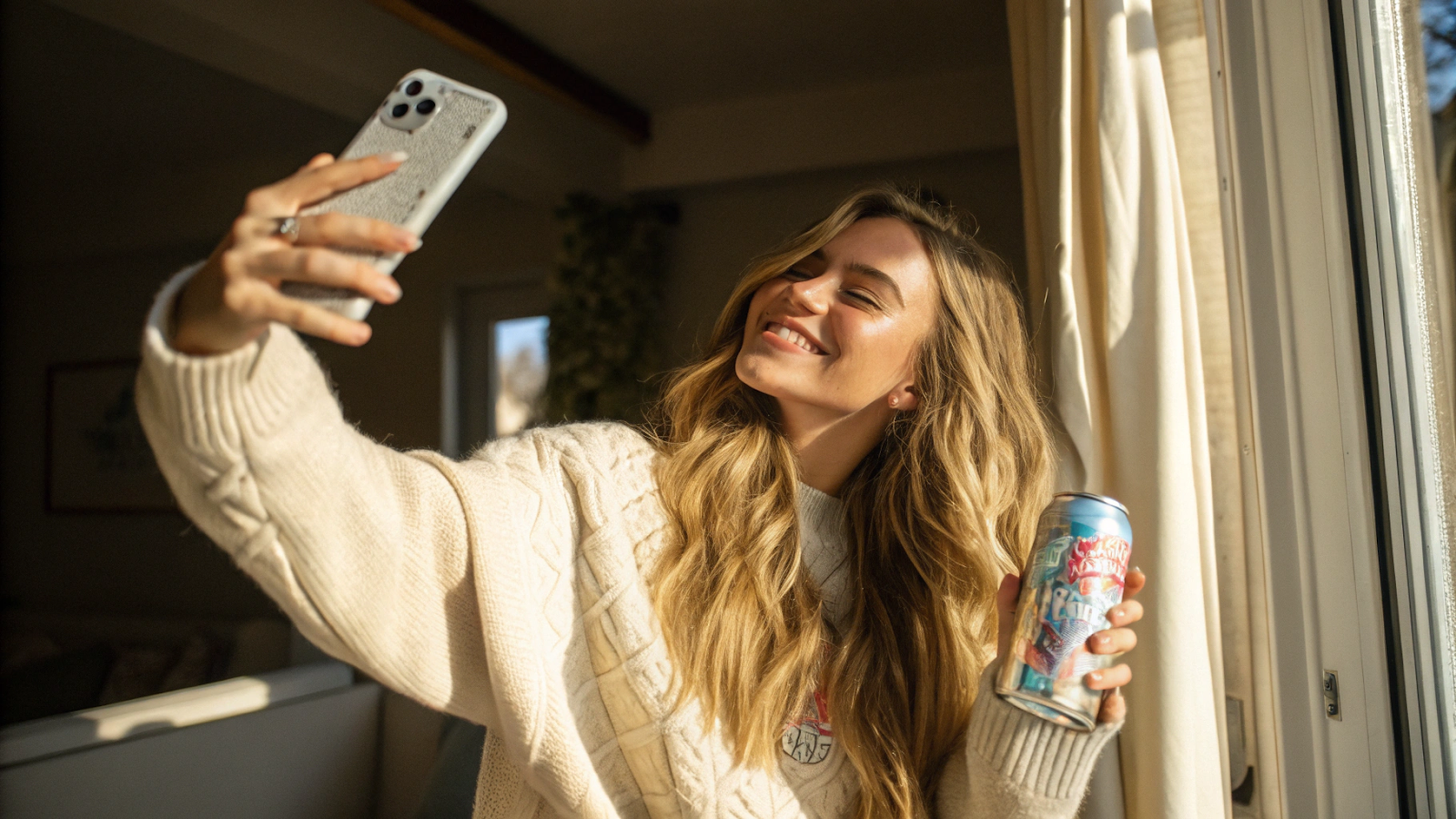Storytelling is a fundamental experience rooted in human connection. From ancient myths to modern novels, stories captivate our attention, evoke emotions, and make information more relatable. In the realm of marketing, storytelling helps transform abstract brand messages into compelling narratives that resonate with audiences on a personal level.
In today's digital playground, influencer marketing has emerged as a powerful strategy for brands to connect with their audiences. Among all the tactics available, storytelling stands out as an art form that can elevate influencer marketing from mere promotion to a memorable, engaging experience. Let's explore how storytelling plays a pivotal role in influencer marketing and how brands can harness their potential.
It’s easy to default to immediately wanting to promote a product or brand instantly within an ad. We hear mixed messages from platforms “promote the product in the first 3 seconds” or “weave the brand in seamlessly throughout the video” to even “drop the product in one of the last shots to increase video completion rates and tease it out”. With all that said, when authentic storytelling is included, the most impactful influencer campaigns will not only increase brand awareness but ultimately drive sales.
At the end of the day, consumers want content to be relatable, they want to be entertained, and they want to learn something. Here’s why it works:
Why Storytelling Matters in Influencer Marketing
- Capture attention: We’ve all likely seen the classic “follow for part 7” of a video. Although it may cause us to roll our eyes as consumers, as we try to follow the sequence of their story, the reality is that it works. Then more content is teased out it has us so curious about the “plot twist” or even the reveal.
- Increase authenticity: Influencers often build their following by sharing their personal stories, experiences, and values. When influencers weave brand messages into their authentic narratives, it enhances credibility and trust. Followers are more likely to engage with content that feels genuine and relatable. Instead of a one-off post about a product, perhaps a creator can make content even more relatable by providing more context into their life on that day, a challenge they are experiencing, or something they are celebrating at that moment. When content focuses less on “selling” and more on just being real and authentic, conversions are likely to increase. At the minimum, brand perceptions should shift as consumers view the brand as more relatable and approachable.
- Build an emotional connection: Stories have the power to evoke emotions, and emotional connections are key to brand loyalty. Influencers who can create content that moves their audience—whether it's through humor, inspiration, or empathy—can foster a deeper connection between the audience and the brand.
- Increase brand recall: Humans are wired to remember stories better than facts and figures. A well-told story can leave a lasting impression, making the brand message more indelible. Influencers skilled in storytelling can craft narratives that connect with audiences, ensuring the brand remains top-of-mind.
- Drive meaningful engagement: Engaging content often sparks conversation and encourages sharing. Stories that resonate with an audience are more likely to be commented on, liked, and shared, amplifying the reach of the brand message. This organic engagement can significantly boost the effectiveness of influencer marketing campaigns.

How to incorporate storytelling in content
- Collaborate with the right creators: Not all influencers will be a perfect fit for your brand. Look for influencers whose personal stories and values align with your brand. Authentic collaboration is key—when influencers genuinely believe in your brand, their storytelling will naturally resonate more with their audience.
- Encourage creative freedom: Influencers know their audience best. While providing guidelines and key messages is important, giving influencers creative freedom allows them to craft authentic stories that resonate with their followers. Trust their expertise in content creation to produce engaging narratives.
- Start small: It doesn’t have to be a long 10-part sequenced video, but even in one 30-second video, or even a static image with an intentional caption, brands (through creators) have the opportunity to tell a story with content. What is happening? Why is it happening? How does this product enhance an experience or make someone’s life easier? Why do they need it?
- Test it out: What works for one brand isn’t always good for another. Create a simple A/B test where you have an even split of content that is standard, evergreen-like content, and compare it with content that uses elements of storytelling. See if your team can recognize any themes, and maybe expand storytelling components in future content.
A Popular Pay’s Example
One of our clients, Brighthouse Financial, ran a campaign about living your passions in retirement. The legally binding campaign brief requested that creators capture and tell compelling stories about retirees who embodied a positive, optimistic, and energetic spirit in life. Content captured retirement stories that aligned with the interests of their target audience such as travel, art, food/cooking, music, film, physical activities, DIY, gardening, fashion, volunteering, and community service. The team was able to collect custom, static, and video assets, communicating that the retirement portrayal of “old” isn’t how modern retirees are living today. Even through static assets, creators were able to tell a story that was paired with compelling captions. The brand was able to repurpose the assets across social and digital as well!






The art of storytelling in influencer marketing is about more than just promoting products—it's about creating meaningful connections with the audience. By leveraging authentic, relatable stories, brands can enhance their credibility, foster emotional connections, and create memorable experiences. As the digital landscape continues to evolve, storytelling will remain a timeless and powerful tool in the influencer marketing arsenal. Stories humanize your brand and create a deeper connection with the audience. THE END.

















